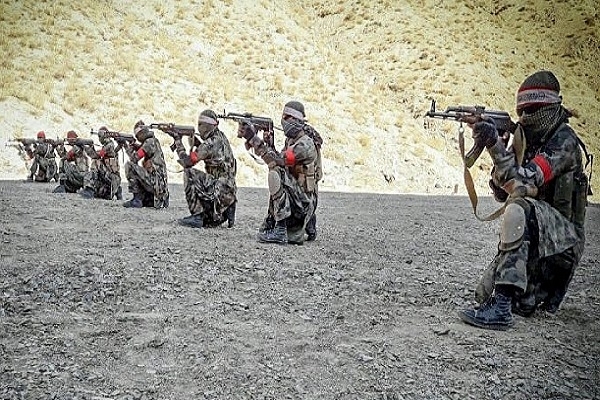
Pakistan Motivated By Fear, Shields Afghan Taliban As ‘Reliably Anti-India Element’, Reveals US Document
Pakistan backs the Afghan Taliban as a "reliably anti-India element in Afghanistan" to counter New Delhi's influence there, according to a background document produced for the US Congress.
Pakistan is also impeding India's "efforts to establish stronger and more direct commercial and political relations with Central Asia through Afghanistan", the policy brief produced by the Congressional Research Service said.
Pakistan's security establishment is motivated by its fear of strategic encirclement by India if its influence grows in Afghanistan, the brief said.
This fear has been exacerbated by US "rhetorical support" for India's diplomatic and commercial presence in Afghanistan, it added.
The rhetorical support that the brief referred to was a statement by US President Donald Trump. "We want them (India) to help us more with Afghanistan, especially in the area of economic assistance and development," Trump had said.
The brief spoke of Pakistan's role in fomenting trouble in Afghanistan because it "may view a weak and destabilised Afghanistan as preferable to a strong, unified Afghan state".
It said that "Afghan leaders, along with US military commanders, attribute much of the insurgency's power and longevity either directly or indirectly to Pakistani support; President Trump has accused Pakistan of 'housing the very terrorists that we are fighting'."
The US has been holding negotiations with the Afghan Taliban to facilitate a peace settlement in Afghanistan that would enable Trump to eventually bring home most of the 14,000 troops deployed there and bring a semblance of an end to the 17-year war.
But the talks got stalled after a US soldier was killed in a Taliban attack in September.
President Ashraf Ghani has expressed reservations about a settlement as the democratically elected government has been sidelined in the negotiations.
The brief prepared for Congress said, "Going forward, it remains unclear what kind of political arrangement could satisfy both Kabul and the Taliban to the extent that the latter abandons its armed struggle."
It added, "Many Afghans, especially women, who remember Taliban rule and oppose the group's policies and beliefs remain wary."
Trump has had to rely on Pakistan to get the Afghan Taliban based there to negotiate.
The brief did not spell out the extent of India's involvement in Afghanistan's development or the price it has paid for it.
The Afghan Taliban has attacked Indian development projects in Afghanistan, among them is the parliament house it built in Kabul.
The organisation has also attacked India's road building and electrical projects in that country. Scores of Indian workers have died in the attacks and engineers and workers have been kidnapped.
New Delhi has committed more than $3 billion in aid to Kabul and one of its major projects has been the 220-km Zaranj-Delaram highway.
The road built at a cost of $100 million connects Chabahar port developed by India in Iran to the Afghan network of highways.
The US has exempted India's involvement in the Chabahar port from its sanctions on dealings with Iran because of its importance to Washington's objectives in Afghanistan.
India has sent 1.1 million tonnes of wheat it has donated to Afghanistan through the port.
New Delhi's security assistance to that country includes training for over 4,000 Afghan military and security personnel and supply of helicopters.
(This story has been published from a wire agency feed without modifications to the text. Only the headline has been changed.)